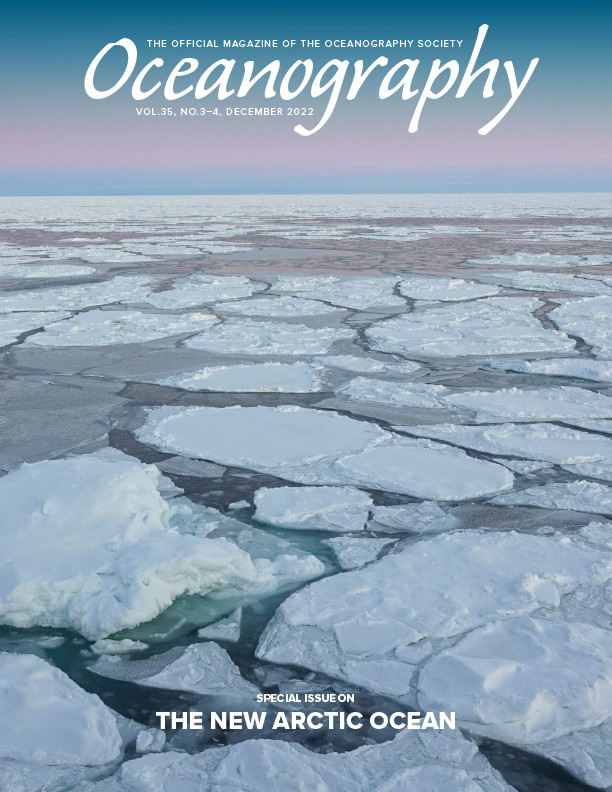Full Text
Both local and international careers in the ocean sciences are largely unavailable or inaccessible to interested students and graduates from under-resourced nations. Barriers to ocean science careers result from a range of region-specific factors. Financial and infrastructural resources supporting ocean science opportunities are limited. Inter- and intranational abuses of power, societal instabilities, and exploitation of communities and resources can create and exacerbate these resource deficits. Access to available resources is not evenly distributed due to societally constructed gaps in opportunity, representation, inclusion, and equity in education and in the geosciences in particular. Ocean careers in under-resourced nations are further constrained by the lack of awareness efforts and examples of real-life, societally beneficial applications of geoscience in education, as well as the absence of specialized mentors and role models.
The educational challenges and opportunity gaps begin in primary school and continue through post-graduate training. Students in under-resourced nations have fewer opportunities to encounter applications of ocean sciences, especially when schools do not have the resources to adequately promote ocean education and conduct awareness-building activities, and teachers lack familiarity with the subject matter. At the higher education level, universities are unlikely to offer ocean science courses due to a lack of demand and few knowledgeable instructors. As a result, students are unaware of the variety of ocean sciences careers, many of which address important societally relevant issues. Globally, few undergraduate programs offer majors in the ocean sciences. Thus, undergraduates worldwide who are interested in ocean sciences, including those from under-resourced nations, often pursue majors in biology, chemistry, physics, and mathematics that take them in directions other than ocean science.
In order to advance their undergraduate training and remain competitive for a wider range of ocean science careers and research, a small percentage of students from under-resourced nations pursue graduate degrees in the ocean sciences or a related field at Western universities. While attending Western universities, these students face barriers to pursuing their degrees that can result from bias, discrimination, and aggressions because of their customs, physical characteristics, and accents, among other traits. Such barriers can challenge students’ senses of belonging and can affect the number, type, and quality of training, collaboration, and mentoring options available to them (Beoku-Betts, 2004; Lee and Rice, 2007; Houshmand et al., 2014; Marín-Spiotta et al., 2020). In addition, graduate-degree-seeking students from under-resourced nations face an array of challenges such as language and cultural barriers, immigration and citizenship hurdles, and expensive standards of assessment that do not predict success but can instead present barriers to admission, such as the Graduate Record Examination (GRE; Miller and Stassun, 2014; Petersen et al., 2018; Miller et al., 2019).
The financial burden of graduate school is another obstacle for students from under-resourced nations, so it is often essential to secure a scholarship to cover fees and living expenses. Universities typically charge higher tuition fees for international students pursuing master’s degrees, and scholarship and fellowship opportunities are often unavailable to non-citizens. Due to fewer fellowship opportunities, international doctoral students may be provided university funding with requirements to remain active in teaching or research assistant roles. Others may receive support from their home country’s government, often requiring the student to either pay the amount back or return to their home country to work for several years post-completion to build or contribute to local programming, research, or teaching initiatives.
As a global community, there are many actions we can take to support ocean sciences education from primary school through post-graduate training in under-resourced nations. Partnerships among nations of differing and/or similar resource levels are essential for ultimately increasing recruitment from under-resourced nations.
Several international and national organizations run programs that include goals or support for building capacity in under-resourced nations (Box 1, 1–10). All of these programs are either actions of or alignments with the United Nations Decade of Ocean Science for Sustainable Development (10). Some programs’ thoughtfully designed efforts focus on two-way knowledge sharing between local populations and organization facilitators about sustainable fishing practices and aquaculture (e.g., 1, 5, 7, 8, 9). Other programs provide or fund training so that local scientists and technicians can collect and transmit oceanic and atmospheric observations with the goal of improving global ocean and climate predictions (all listed). Several of these programs prioritize establishing or promoting best practices that involve project design and implementation standards and ethical guidelines for equity-centered capacity development initiatives and decision-making processes (e.g., 1, 3, 4, 8). A number of papers outline best practice recommendations for relevant ocean science or policy efforts (e.g., Hagelsteen and Becker, 2019; Vierros et al., 2020; Ferrer et al., 2021; Nyadjro et al., 2021; Urban and Seeyave, 2021; Krug et al., 2022).
|
Other programs concentrate their efforts on providing invaluable ocean science learning, research, and/or networking experiences (e.g., Box 1, 3, 5, 7, 8, 9,). These efforts include short-term educational and research collaboration workshops, exchange programs, and virtual training in democratized tools and technologies used in the geosciences. Several of these programs provide support and professional development opportunities for students and early to mid-career professionals (e.g., an emphasis of 5, 7, 8) and model or encourage diverse representation in leadership, including those from underrepresented groups both in under- and higher-resourced nations. Ocean Corps, an endorsed program of the UN Ocean Decade, is an example of an organization that promotes projects and collaborations that target all of the above goals on regional to international scales.
Students and professionals from under-represented, under-resourced, and/or disadvantageously positioned groups worldwide urgently require access to additional training opportunities in the ocean sciences. While the programs listed in Box 1 provide a model for how resources can be shared globally to diversify the field of ocean science, these efforts require increased and sustained attention and support within and between nations in order to continue, improve, and expand. By opening training and career opportunities to participants across the full range of backgrounds and lived experiences, the global ocean science community will be best equipped to fulfill our transboundary responsibilities to humankind and ecosystems.

